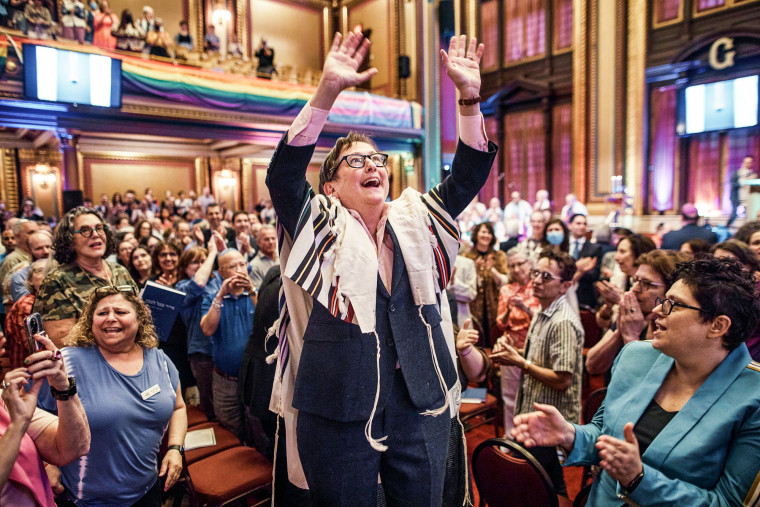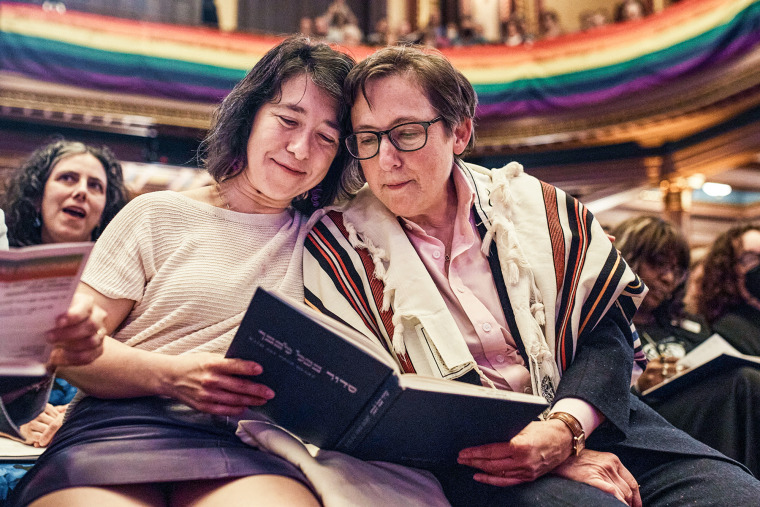Right-wing extremists threaten LGBTQ-affirming religious communities: report
More than 150 anti-LGBTQ+ incidents have targeted affirming religiouscommunities across the United States since June 2022, according to new data released Tuesday by GLAAD’s ALERT Desk — a stark reflection of how extremists are targeting not only LGBTQ+ people but also the faith-based spaces that welcome them.
The report documents a wave of violence and harassment against churches, synagogues, mosques, and temples that openly support LGBTQ+ inclusion. The incidents include death threats, vandalism, harassment, attempted arson, physical assaults, and bomb threats.
GLAAD first reported in early 2024 that it had tracked more than 60 such incidents. Since then, more than 90 additional attacks have come to light, bringing the total to 151, the organization said.
“As so many people of faith celebrate their holy days this spring, GLAAD wanted to bring a spotlight to those who are not only leaders in their own faith communities, but who also work to make sure everyone has a seat at the table,” Sarah Moore, GLAAD’s senior manager of news and research, told The Advocate. “In a time of increased divisiveness, it’s more important than ever that we build bridges for everyone impacted by hate, including those targeted by anti-LGBTQ hate, Islamophobia, antisemitism, and racism.”
Among those targeted is Bishop Mariann Edgar Budde, leader of the Episcopal Diocese of Washington, D.C. Budde stepped into the national spotlight in January when she delivered a sermon at the National Prayer Service at Washington National Cathedral, directly addressing President Donald Trump’streatment of LGBTQ+ people and immigrants.
“There are gay, lesbian, and transgender children in Democratic, Republican, and independent families, some who fear for their lives,” Budde said during the service. “The vast majority of immigrants are not criminals. They pay taxes and are good neighbors.”
Her sermon, calling for mercy and compassion, came just hours after Trump signed an executive order revoking federal recognition of transgender and nonbinary people. The backlash was swift. Trump publicly demanded an apology. Budde refused.
“I am not going to apologize for asking for mercy for others,” Budde told The Advocatein an interview days later. She said her message was rooted in the lived experiences of the people she serves. “It wasn’t like I was talking about people I don’t know.”
Budde also revealed that she received death threats and what she described to MSNBC’s Rachel Maddow as “death wishes” in the aftermath of the sermon. Still, she said the response from LGBTQ+ people and allies far outweighed the hate. “Among my friends in the LGBTQ+ community, there’s been a lot of gratitude and acknowledgment of the hard time we’re living through,” she told The Advocate.
The GLAAD report shows that Budde is far from alone.
In New Jersey, the First Congregational United Church of Christ received death threats in March after the local Moms for Liberty chapter falsely accused the church of supporting “pedophilia” for flying a Pride flag. One threat said the church should be punished “with gasoline and a match.”
The pastor, Rev. Mark Suriano, addressed the threats in a later sermon. “It was a weekend of terror, grief, and exhaustion,” he said. “But the outpouring of support far surpassed the hateful and violent rhetoric against us.”
In Connecticut, anti-LGBTQ graffiti was scrawled across the Pride-themed walkway at Immanuel Congregational Church days before its scheduled Pride event. In Michigan, police arrested a man in 2024 for plotting a mass shooting targeting LGBTQ+ people, religious institutions, schools, and hospitals.
GLAAD’s report comes as anti-LGBTQ rhetoric continues to escalate nationwide, fueled by right-wing political attacks and disinformation campaigns. The organization encourages anyone who experiences or witnesses an anti-LGBTQ incident to report it to its ALERT Desk.




